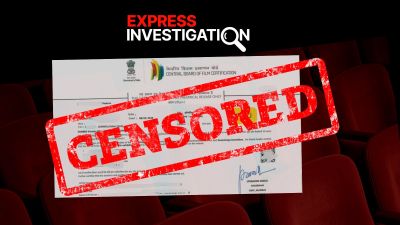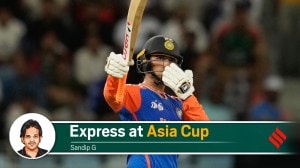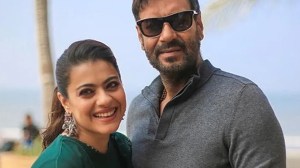Vindicated, giant wheel of law rotates slowly but surely: ex-CJI
Not only has the Best Bakery verdict come as a vindication, there are key lessons to be learnt from it, said Justice Visheshwar Nath Khare, ...

Not only has the Best Bakery verdict come as a vindication, there are key lessons to be learnt from it, said Justice Visheshwar Nath Khare, former Chief Justice of India, who initiated the unprecedented process of re-trial in the Best Bakery case despite the Gujarat High Court affirming the acquittal verdict.
“I feel vindicated,” he told The Indian Express today. “I found the prosecution was not sincere in the discharge of its duty… rather it was behaving in a friendly manner with the accused.”
It’s in the rarest of rare cases that re-trial is ordered. But Best Bakery created history also because the case was shifted out of the state and a prosecutor was ordered to be appointed with the “consent” of the victims.
“Eight acquitted and four absconding, at least something in the cause of justice, whether or not the victim is reliable. Because the powers that be, the managers of the system, cannot afford to be Neros fiddling when Rome is burning,” said Justice Khare. “Now that Zaheera has to face the charge of perjury, hopefully, this aspect will also come in sharp focus and something is done that will change the future.”
Was he not worried or anxious when Zaheera retracted her statement later?
“Yes, certainly, I was taken aback when she repeatedly retracted her statement….We (he and his brother judges in the Supreme Court) were doing whatever we could under the law to rectify an aberration of judicial process…but the victim is behaving in such a manner. However, finally the giant wheel of law, though slow, has to rotate to catch up with the evils.”
What are the lessons to be learnt from the Best Bakery case?
“The very first lesson,” said Justice Khare, “is that in a democracy, it may be that elections are held regularly but justice to people is the most important aspect which is not received by specially weaker sections of the society. It has to be dispensed at any cost.”
Then there is the question of communal riots. The Best Bakery prosecution showed, he said, that “if the State wants, it can contain communal riots.”
He recalled a Chief Minister, at a meeting, telling bureaucrats and police officers that “even if one communal incident happened, (he) would punish the officer concerned. There was no incident of communal riot in his regime. This is it. If there is will, country can become a zero-crime zone”.
Another major lesson, said Justice Khare, is that the state must protect its people, particularly the weaker sections. “But prosecuting a powerful offender, the duty of the State, is totally missing with the result that victims did not get justice.”



- 01
- 02
- 03
- 04
- 05




























